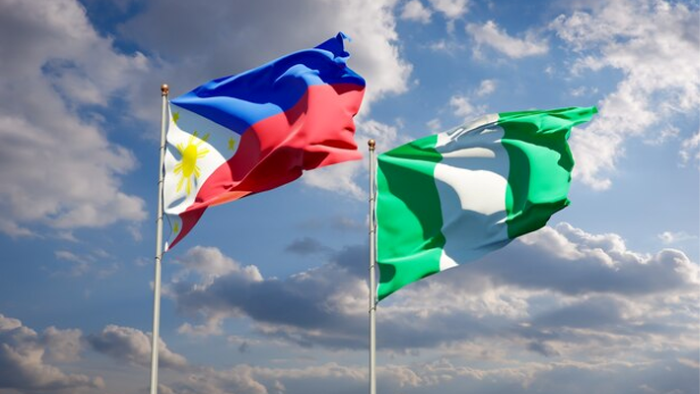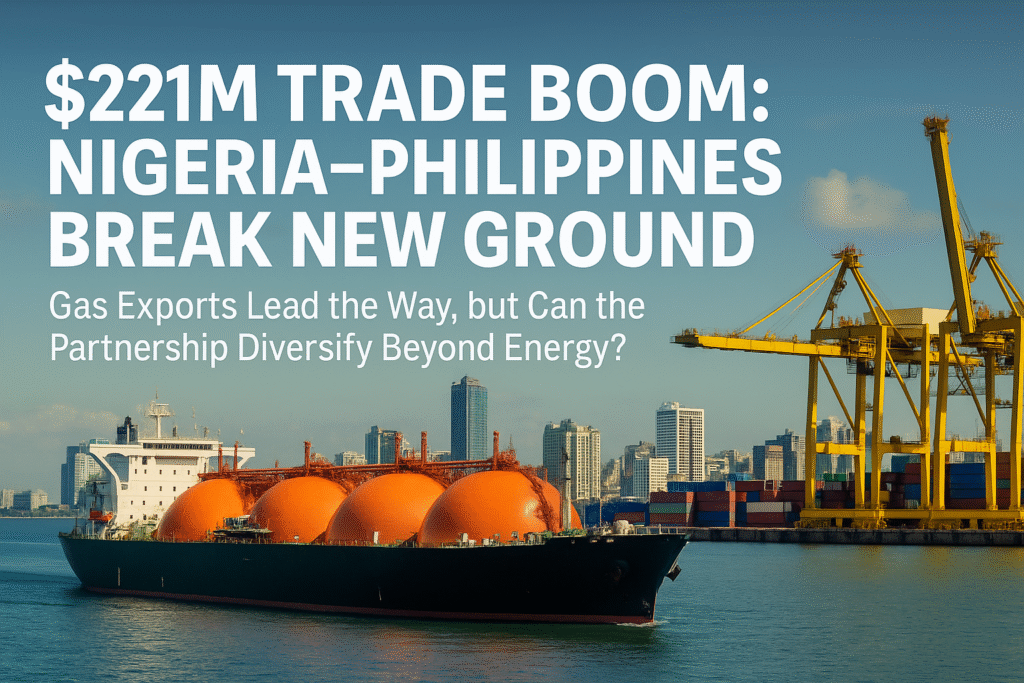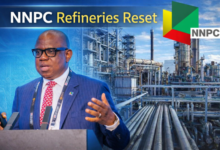Nigeria–Philippines Trade Surges 370%: Gas Exports Power New Bilateral Momentum

Nigeria’s trade with the Philippines soared by an extraordinary 370% in 2024, climbing from $47 million in 2023 to $221 million, according to Ambassador Mersole Mellejor of the Republic of the Philippines. The surge, driven overwhelmingly by Nigerian liquefied petroleum gas (LPG) exports, signals a deepening of economic ties between Africa’s largest economy and one of Southeast Asia’s most dynamic growth markets.

Energy at the Core of Bilateral Growth
Over 90% of the Philippines’ imports from Nigeria in 2024 were liquefied petroleum gas and methane, underscoring Nigeria’s emergence as a reliable, cost-competitive energy partner. For Manila, this diversification away from traditional Middle Eastern suppliers is more than transactional—it’s a strategic play for energy security.
“Nigeria and Africa are stable, competitive, and reliable partners. For the Philippines, this relationship isn’t just about trade; it’s about securing our energy future,” said Ambassador Mellejor.
For Nigeria, the win is twofold: higher export earnings and positioning as a strategic supplier in Asia’s expanding energy markets.
Beyond Gas: Diversifying the Relationship
While energy currently dominates the trade basket, both countries are looking to broaden engagement. The Philippines has expressed interest in collaborating on:
- Education and capacity building – joint programmes and exchange initiatives.
- Youth entrepreneurship – aligning with NACCIMA’s push to unlock Nigeria’s youthful population.
- Technology and services trade – leveraging the Philippines’ strength in BPO (business process outsourcing) and Nigeria’s expanding fintech ecosystem.
The historical context matters: diplomatic ties between Nigeria and the Philippines stretch back to 1961, with today’s surge marking one of the most significant expansions in over six decades.
Nigeria’s $1 Trillion Economy Ambition: External Validation
Ambassador Mellejor was quick to commend President Bola Tinubu’s trillion-dollar economy agenda, describing it as “realistic and achievable” if youth, digital innovation, and resources are effectively harnessed. His comments provide an important external validation of Nigeria’s economic ambition, particularly from a high-growth ASEAN country that has successfully transitioned from an agrarian to a diversified services-and-industry economy.
Why This Matters for Nigeria
The Nigeria–Philippines trade surge carries three major implications for Nigeria’s wider economic strategy:
- Diversified Energy Markets: Reducing overdependence on Europe and West Africa for gas exports.
- Strategic Partnerships in ASEAN: Creating a foothold in Asia’s high-growth region, where energy and agribusiness demand is rising.
- Youth as Economic Bridge: Collaboration on entrepreneurship and skills development could create a pipeline for joint ventures in tech, education, and services.
BRANDECONOMY Takeaway
This is more than a 370% trade jump—it is a case study in how strategic energy exports can evolve into wider bilateral partnerships. For Nigeria, the challenge is sustaining momentum by expanding into non-oil exports and embedding youth-driven innovation into its trade diplomacy.
“Nigeria’s future lies in becoming both an energy giant and a diversified trade hub. The Philippines surge is proof that when policy and opportunity align, the results can be exponential.”












